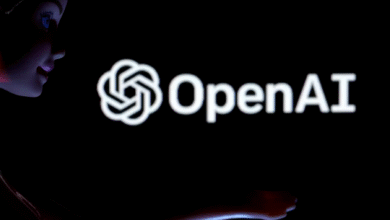
Artificial Intelligence (AI) has been a buzzword in the business world for quite some time now. It represents the simulation of human intelligence processes by machines, enabling them to perform tasks that typically require human intelligence, such as learning, reasoning, problem-solving, and decision-making. The significance of AI in modern business cannot be overstated, as it offers unparalleled opportunities for efficiency, innovation, and competitive advantage.
Read More: AI Ethics: Navigating the Moral Landscape of AI
AI Adoption Challenges

Despite its potential benefits, the adoption of AI in business comes with its fair share of challenges. One significant obstacle is the cost associated with implementation. Integrating AI technologies into existing systems often requires substantial investment in hardware, software, and skilled personnel. Additionally, there are concerns regarding data privacy and security, especially given the sensitive nature of the information AI systems often handle. Moreover, resistance to change within organizational cultures can hinder the smooth integration and acceptance of AI solutions.
Real-world Applications of AI
The practical applications of AI in business are vast and varied. From automating routine tasks to providing data-driven insights for strategic decision-making, AI is revolutionizing operations across industries. In customer service, AI-powered chatbots are increasingly being used to handle customer inquiries and support requests efficiently. In finance, AI algorithms are employed for fraud detection, risk assessment, and algorithmic trading. In healthcare, AI-driven diagnostic tools aid in disease detection and treatment planning. These examples illustrate the diverse ways in which AI is transforming business practices and driving innovation.
Benefits of AI in Business
The adoption of AI offers several tangible benefits for businesses. One of the most significant advantages is increased efficiency and productivity. By automating repetitive tasks and streamlining processes, AI enables organizations to accomplish more in less time, freeing up valuable human resources for higher-value activities. Moreover, AI-driven insights provide businesses with a competitive edge by facilitating data-driven decision-making. Whether it’s optimizing supply chains, predicting consumer behavior, or personalizing marketing campaigns, AI empowers businesses to make smarter, more informed choices that drive growth and profitability.
Ethical Considerations

However, the widespread adoption of AI also raises important ethical considerations. One such concern is the issue of bias in AI algorithms. Since AI systems learn from historical data, they may inadvertently perpetuate existing biases present in the data, leading to unfair or discriminatory outcomes. For example, biased hiring algorithms may unintentionally favor certain demographic groups over others, perpetuating systemic inequalities. Additionally, there are concerns about the impact of AI on employment and the workforce.
As AI technologies automate tasks previously performed by humans, there is a risk of job displacement and economic disruption, particularly for workers in low-skilled or routine-based occupations. Addressing these ethical considerations requires a thoughtful and proactive approach to AI development and deployment, grounded in principles of fairness, transparency, and accountability.
AI Integration Strategies
Successfully integrating AI into business operations requires careful planning and execution. One strategy is to start small and scale gradually. By piloting AI initiatives in specific areas of the business, organizations can assess their effectiveness and address any challenges or limitations before expanding deployment. Investing in employee training and upskilling is also essential to ensure that staff members have the necessary skills and knowledge to work effectively alongside AI systems. Collaboration with AI experts and service providers can further accelerate the integration process, providing access to specialized expertise and resources that may not be available in-house.
Success Stories
Numerous success stories illustrate the transformative impact of AI on businesses of all sizes and sectors. For example, Amazon’s recommendation algorithm analyzes customer behavior to provide personalized product recommendations, driving sales and customer satisfaction. Similarly, companies like Google and Facebook use AI-powered algorithms to deliver targeted advertising, maximizing the effectiveness of marketing campaigns. In healthcare, AI-driven diagnostic tools are helping doctors detect diseases earlier and more accurately, improving patient outcomes and reducing healthcare costs. These success stories demonstrate the tangible benefits that AI can bring to businesses when implemented effectively.
Future Outlook

Looking ahead, the future of AI in business is both promising and challenging. Rapid advancements in AI technology, coupled with increasing data availability and computing power, are expected to drive continued innovation and adoption across industries. However, significant challenges remain, including regulatory complexities, ethical considerations, and societal implications. Addressing these challenges will require collaboration and cooperation among businesses, policymakers, and other stakeholders to ensure that AI is developed and deployed responsibly and ethically.
Read More: The Latest Breakthroughs in AI Technology
FAQs
- What industries can benefit most from AI integration? AI has applications across various industries, including healthcare, finance, retail, manufacturing, and transportation, among others.
- How can businesses address concerns about AI bias? Businesses can mitigate AI bias through rigorous testing, diverse training data sets, and ongoing monitoring and evaluation of AI algorithms.
- What role does human oversight play in AI-driven decision-making? Human oversight is crucial in ensuring the ethical and responsible use of AI, particularly in critical decision-making processes where human judgment and empathy are irreplaceable.
- Are there regulatory frameworks governing the use of AI in business? While regulatory frameworks vary by jurisdiction, efforts are underway to establish guidelines and standards for the ethical development and deployment of AI technologies.
- How can small businesses leverage AI without substantial resources? Small businesses can explore affordable AI solutions, collaborate with AI service providers, and invest in targeted training to harness the benefits of AI within their budget constraints.
The Final Words
While the hype surrounding AI in business is undeniable, it is essential to recognize the nuanced realities underlying its adoption and integration. By understanding the challenges, harnessing the benefits, and navigating the ethical considerations with diligence, businesses can unlock the full potential of AI to drive innovation, efficiency, and sustainable growth.








One Comment